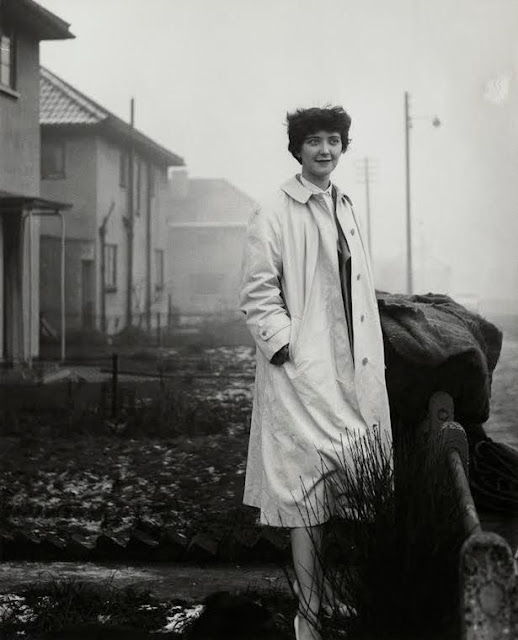About Shelagh Delaney
 |
Although I mentioned and explored Shelagh Delaney within
Authorship I think it’s important that I evaluate and look at why I’ve decided
to choose her work to work from now.
|
When I first came across Shelagh’s work through looking at
Kitchen Sink Dramas, I found it very different from her contemporaries like
John Osbornes Look Back In Anger and John Braines Room At The Top. Shelagh’s
first play ‘A Taste of Honey’ was written in 1958 one of the earlier British
Kitchen Sink plays. In comparison to Braine and Osborne Delaney focused her
play on the reality of what life was like for a young woman who didn’t aspire to
be anything stereotypical to her gender. The women presented in the male
authors plays are often portrayed as either a sexual object to be obtained or a
hindrance on the protagonists’ lives. Jo Shelagh’s lead rejects everything that
is expected of her and she is written as a young man would be, disillusioned with
society at the time and too lazy to do anything about it but moan. Jo falls
pregnant at the start of the play through a character who is unnamed he works
on the ships as a chef and leaves before Jo knows she’s having a child. Aside from how inspirational I find the plot of A Taste of
Honey I think Shelagh herself is a bigger inspiration. She grew up in Salford
and witnessed her father, crippled from the war become a hindrance on her
mother who worked to provide for the family. Shelagh’s early love for books and
reading led her to write, she listened to the conversations and worked from
what she was used to, the poor areas of Salford. When reading Selina Todd’s
biography of Shelagh, she paints the best picture of a woman who slept when she
could, lazed on the couch quaffing wine and never denying herself anything. Shelagh
was a kind and clever woman who surpassed critics and upper-class people’s
expectations of what ‘common’ women were like from areas like Salford. All of the Kitchen Sink pieces are great examples of how you
can create something intellectual and cultural out of a life and surrounding which
isn’t, I think it makes the work have a lot more value than writing from a place
of rich culture and scenery. It is something that I’ll explore further in my
master’s and possibly further. I think even today these stereotypes still stand especially in
the areas of writers and theatre; people still have a low expectation of
working-class people. I do think that although A Taste of Honey was successful when
it was produced it should still be talked about and commended. |
Comments
Post a Comment